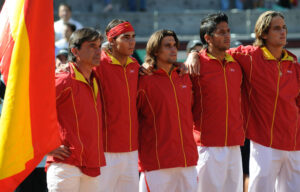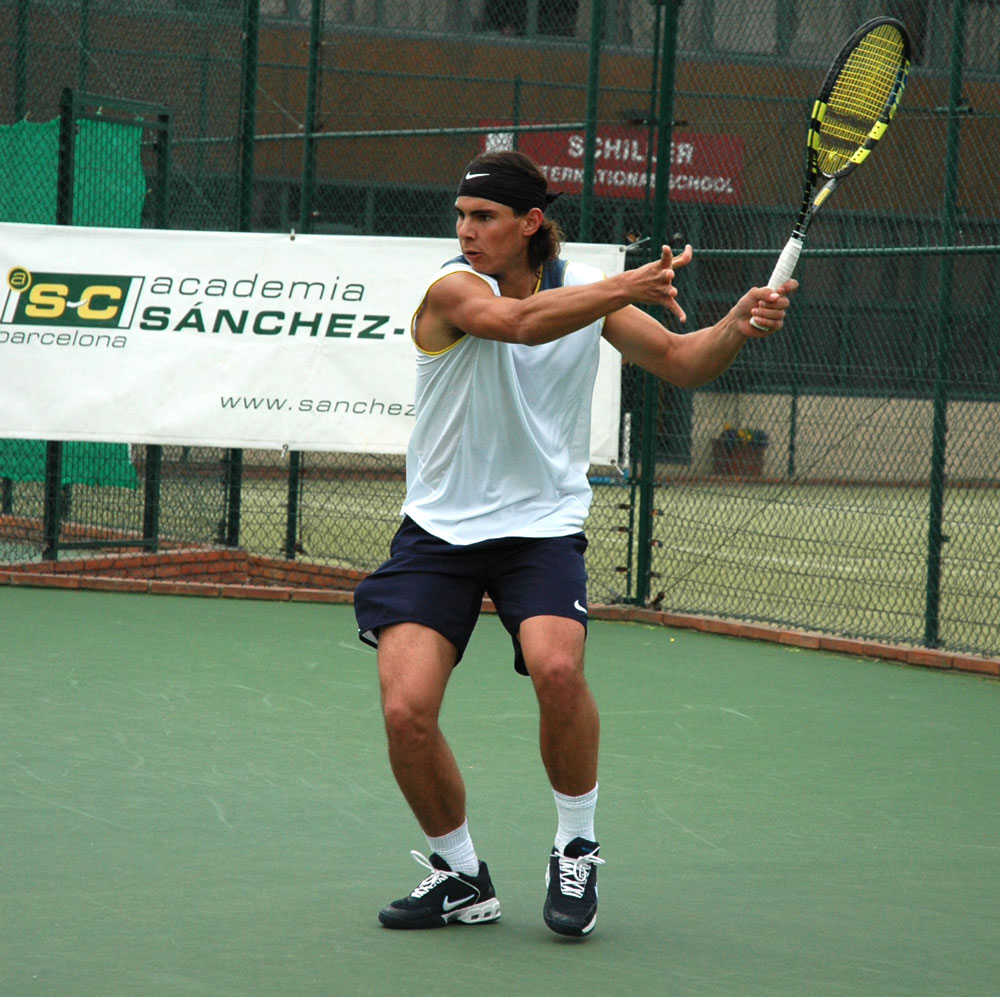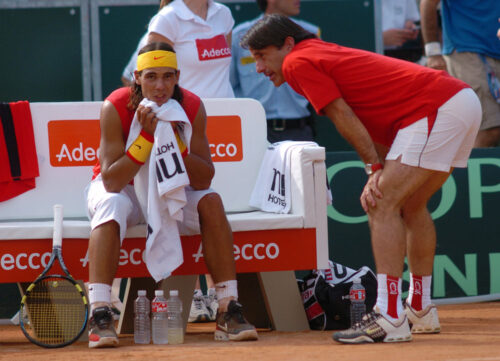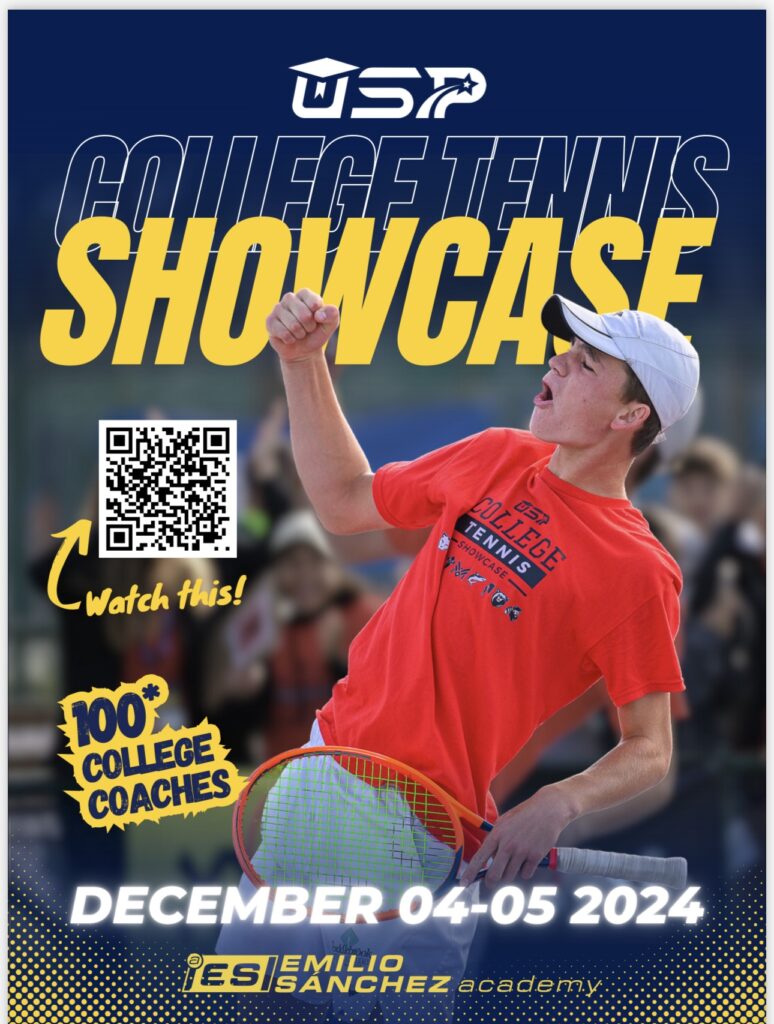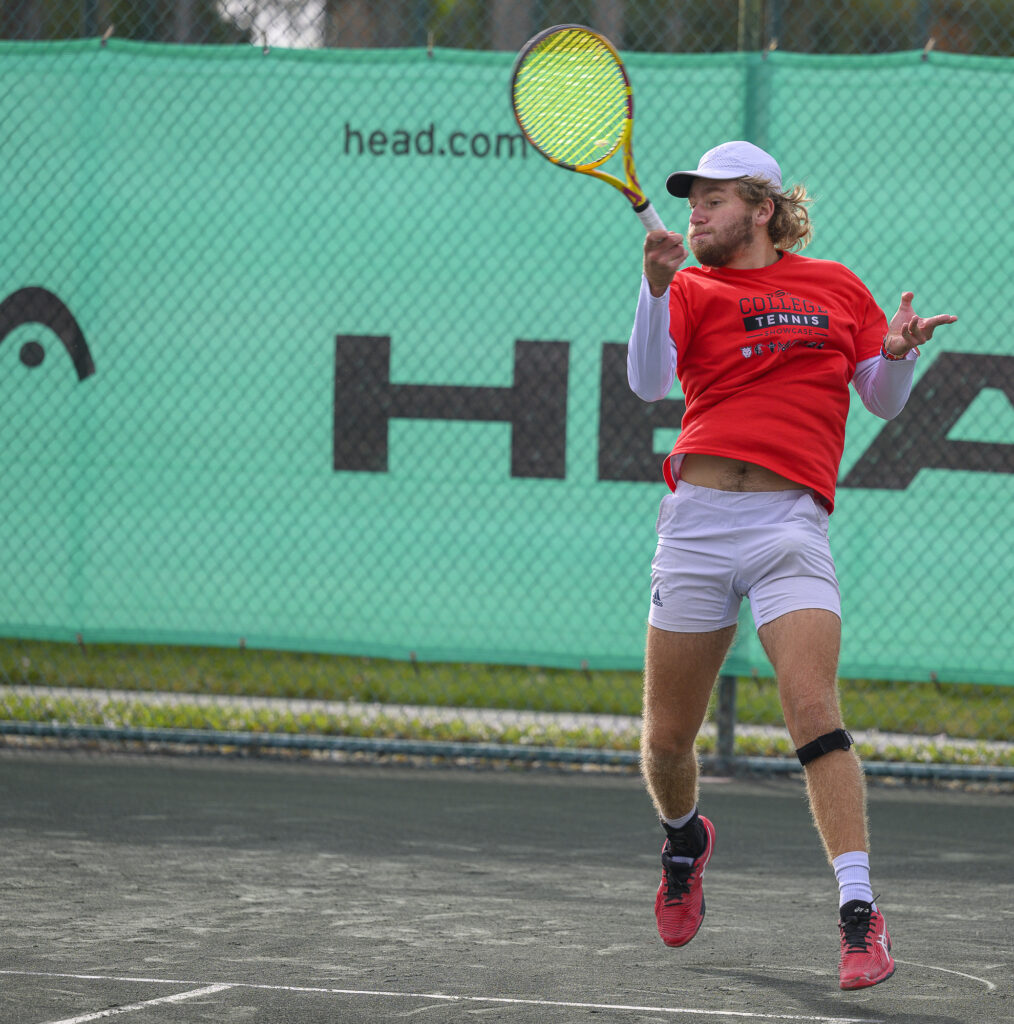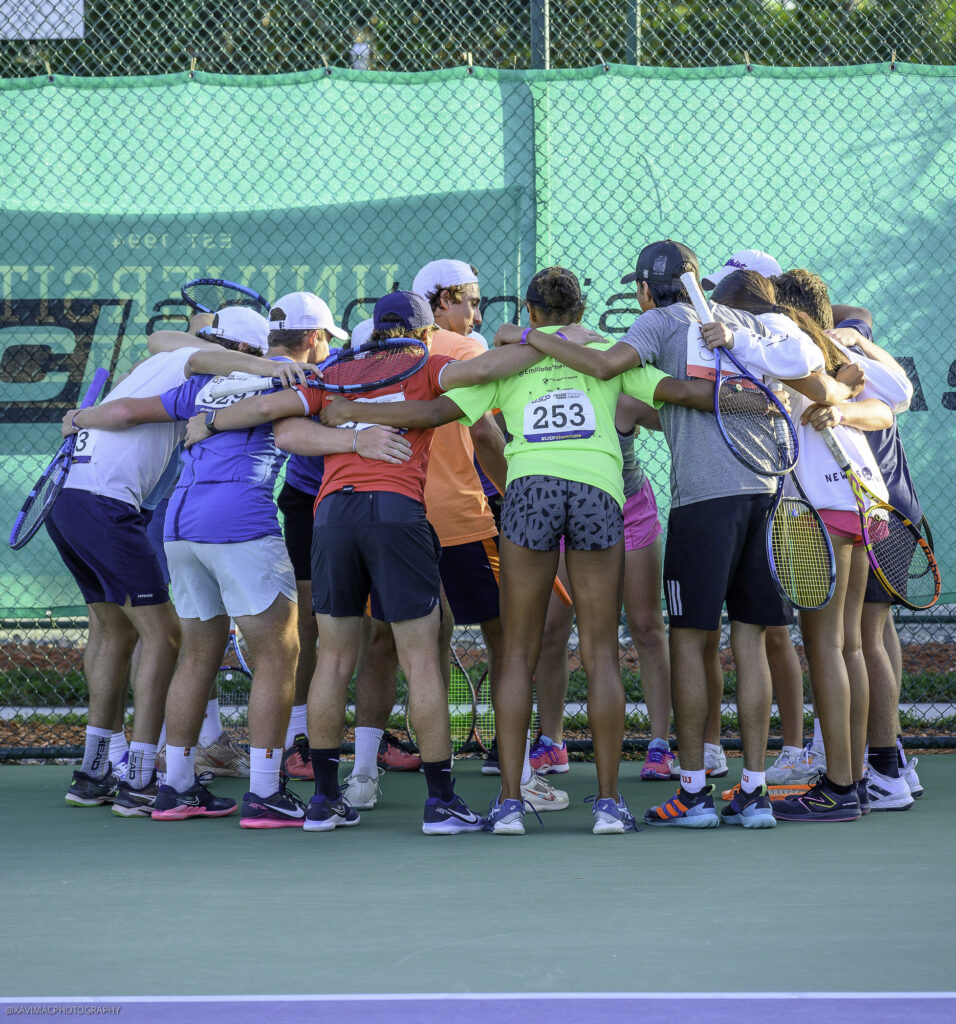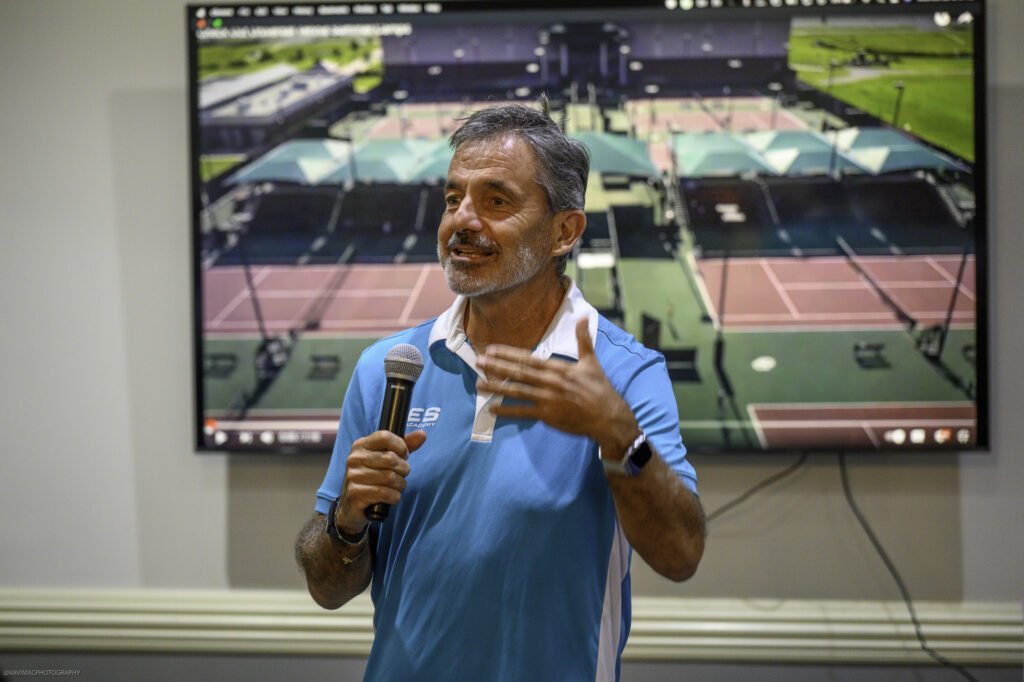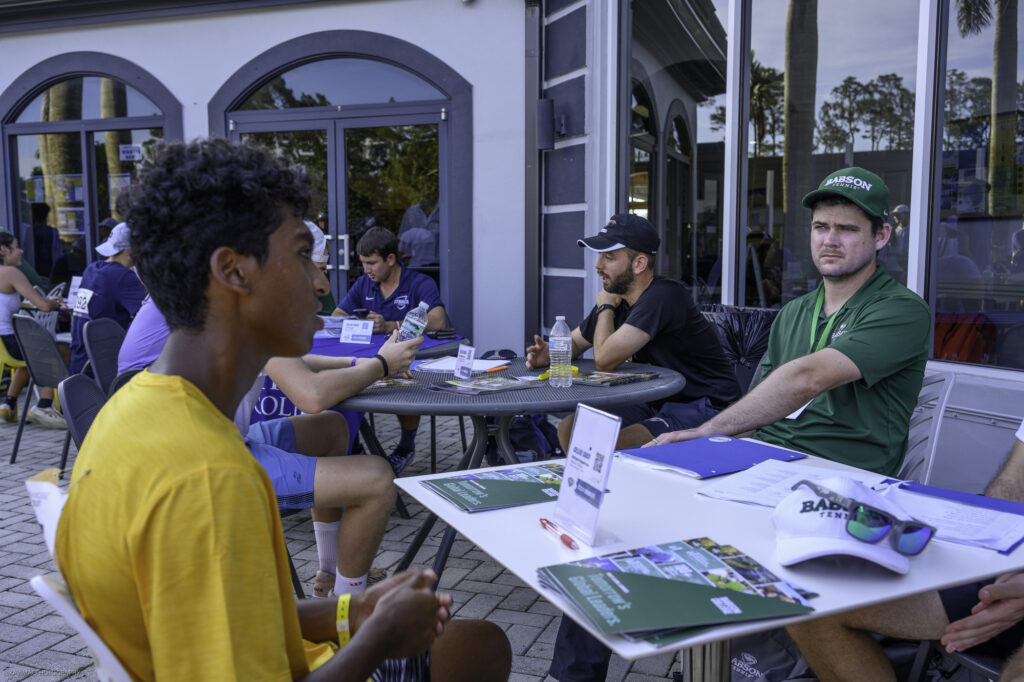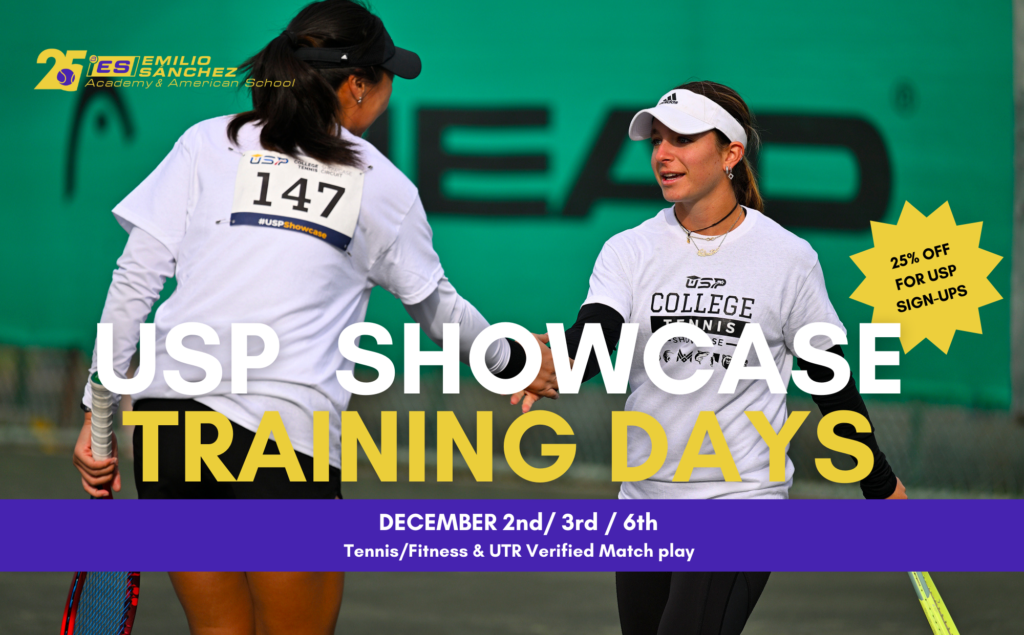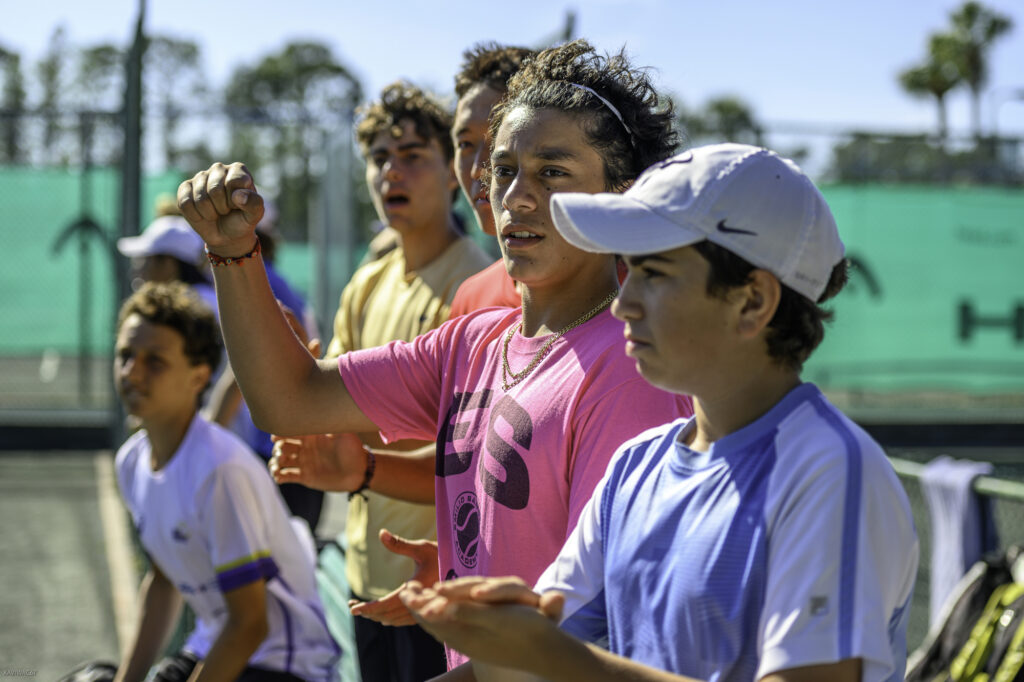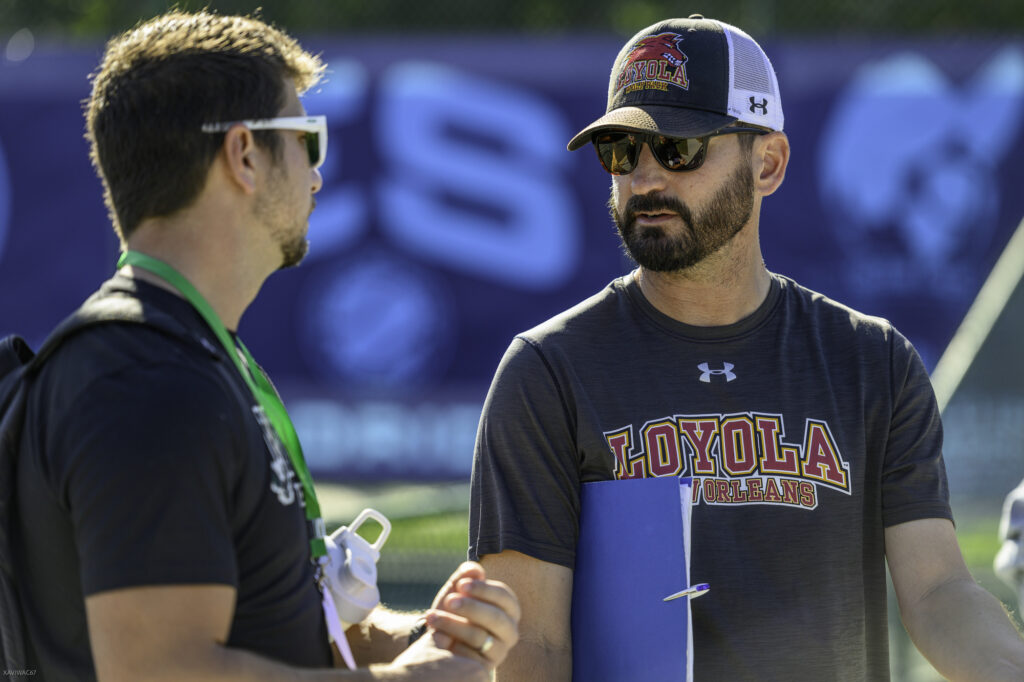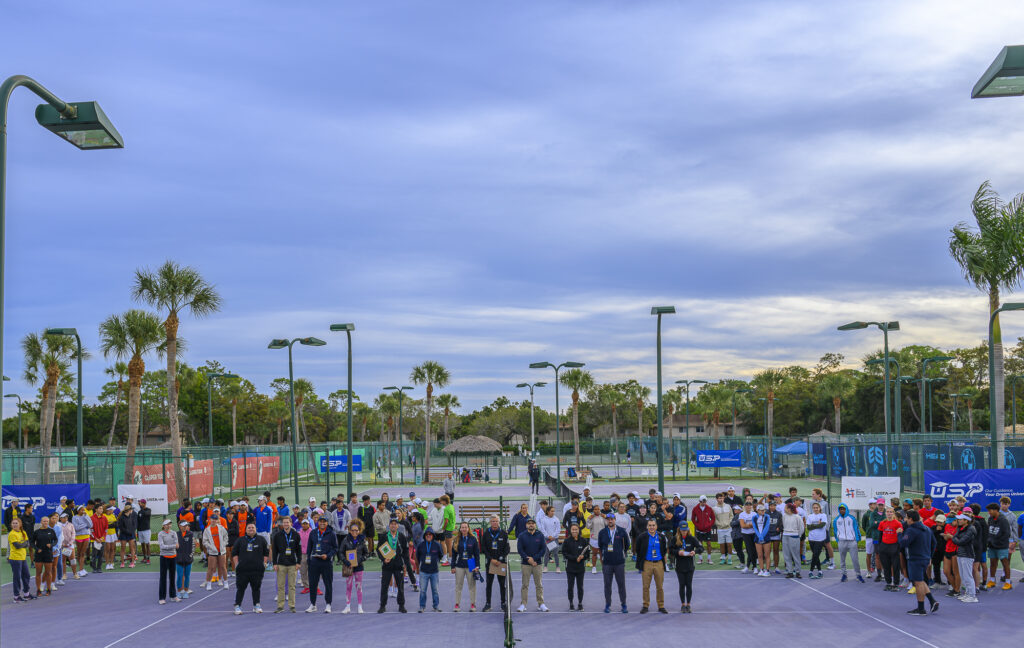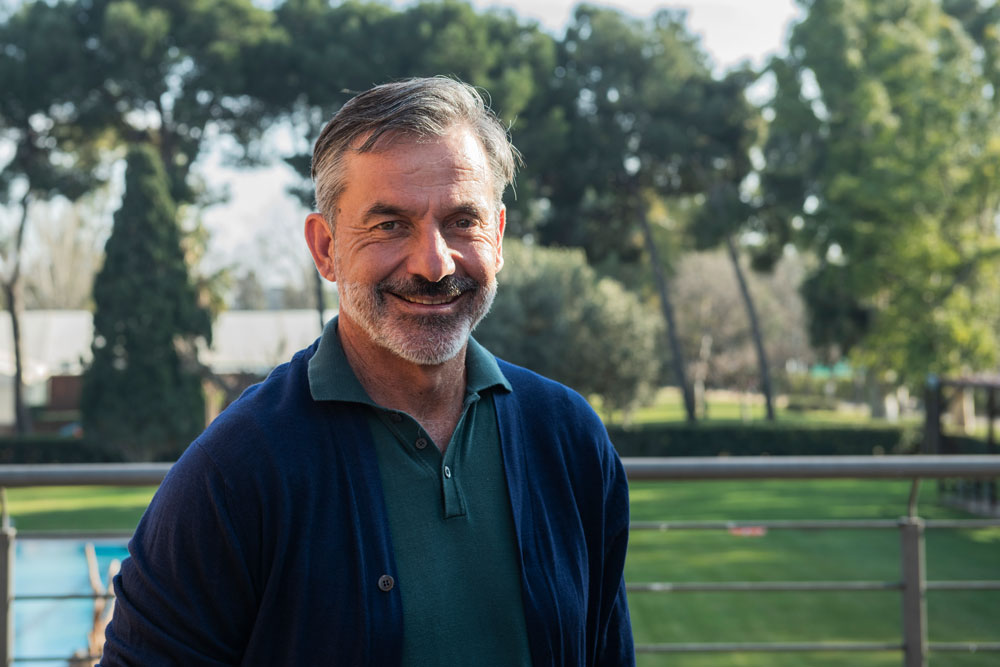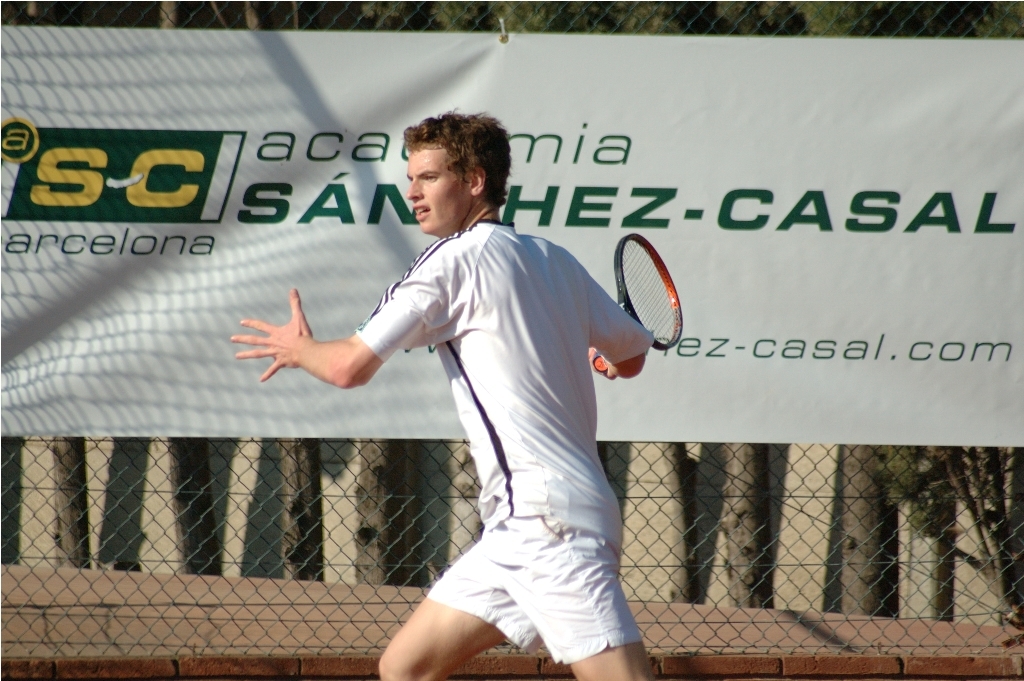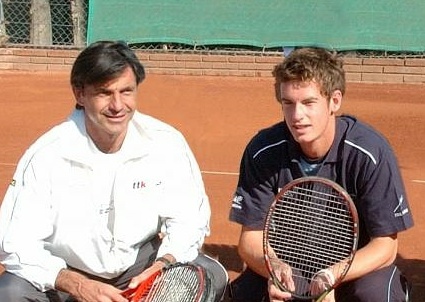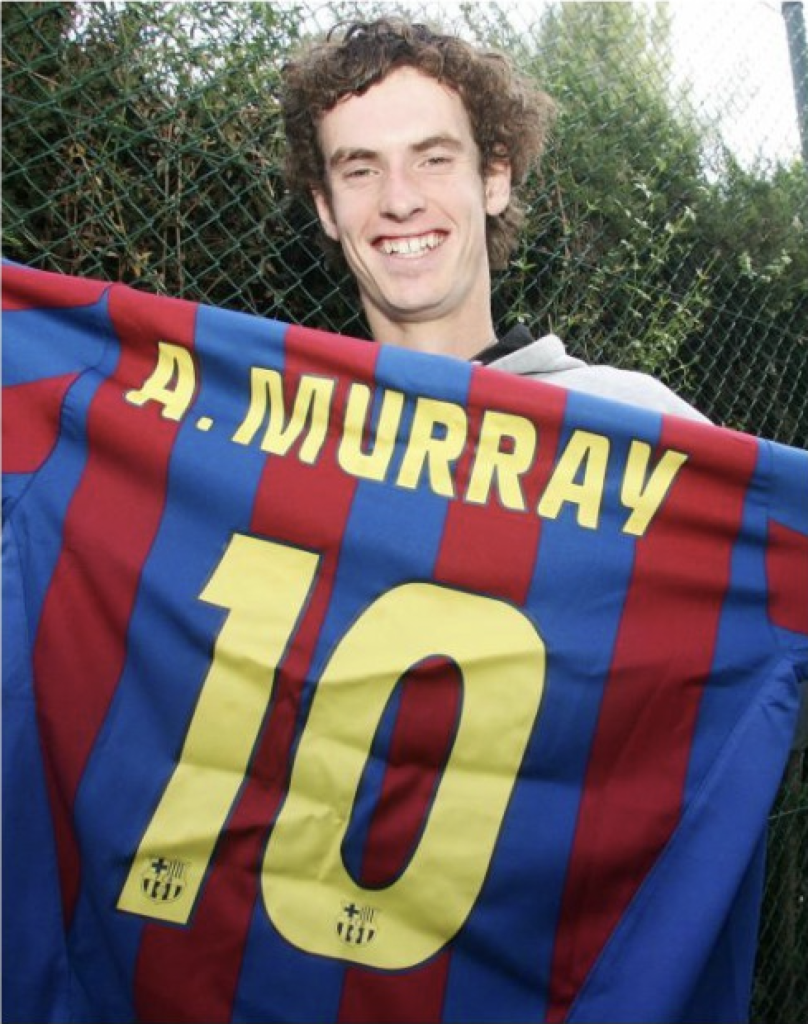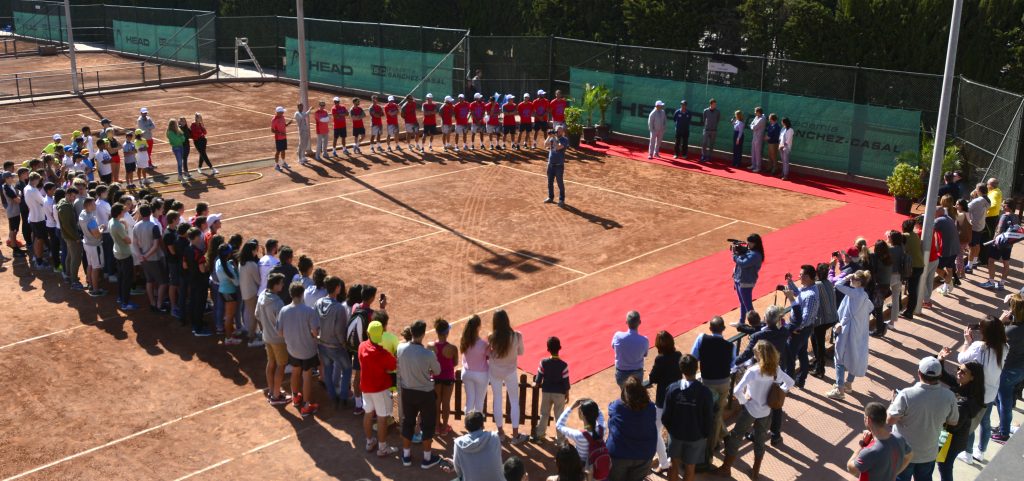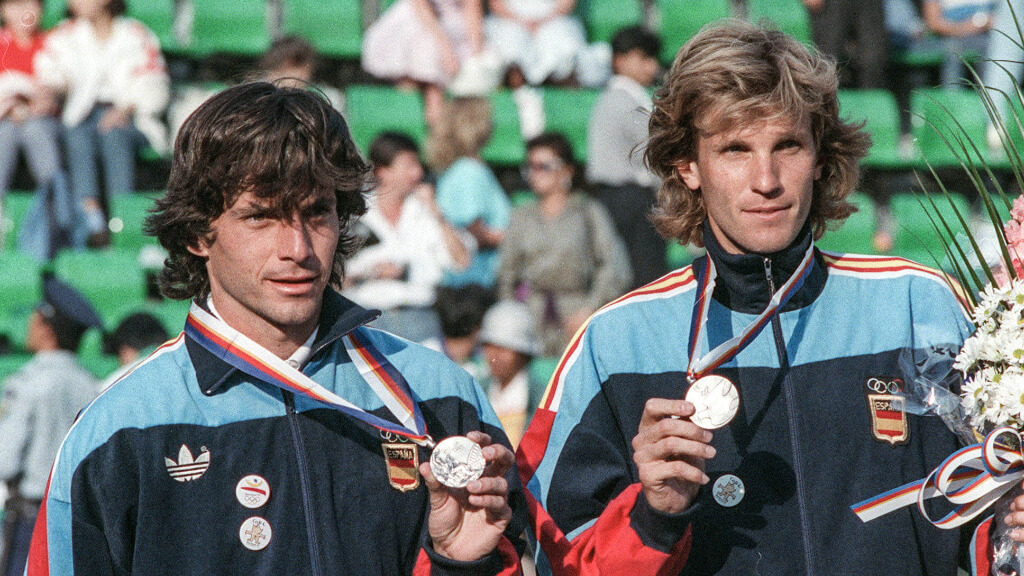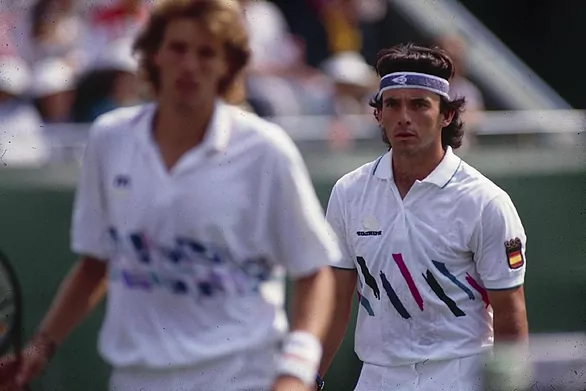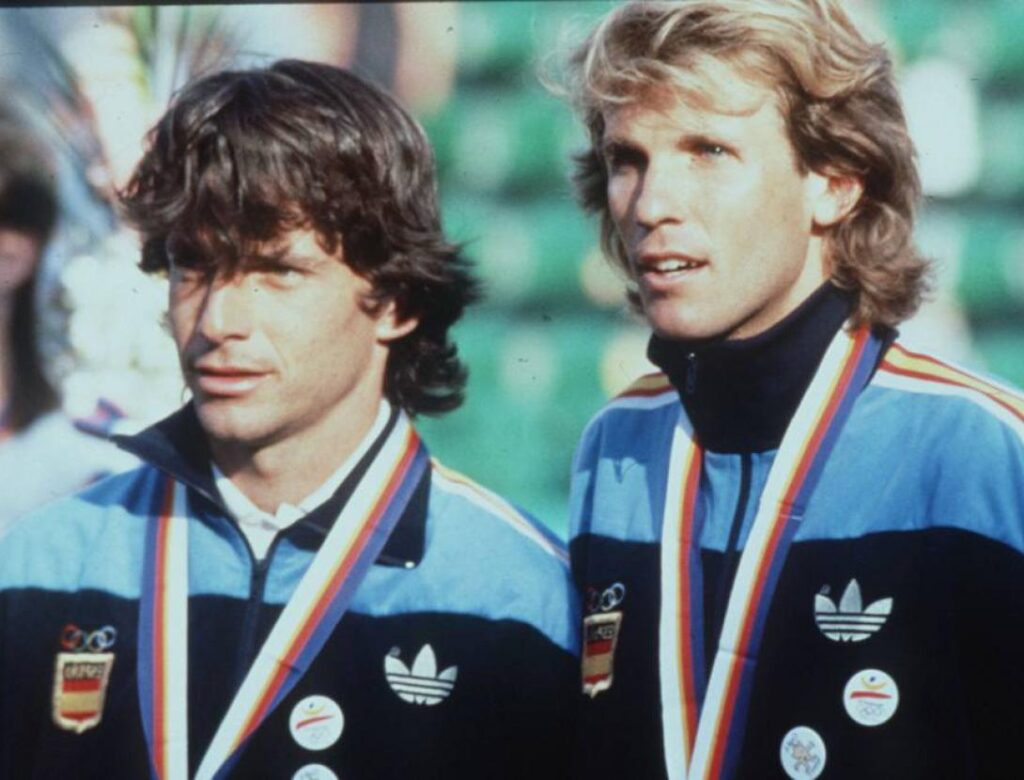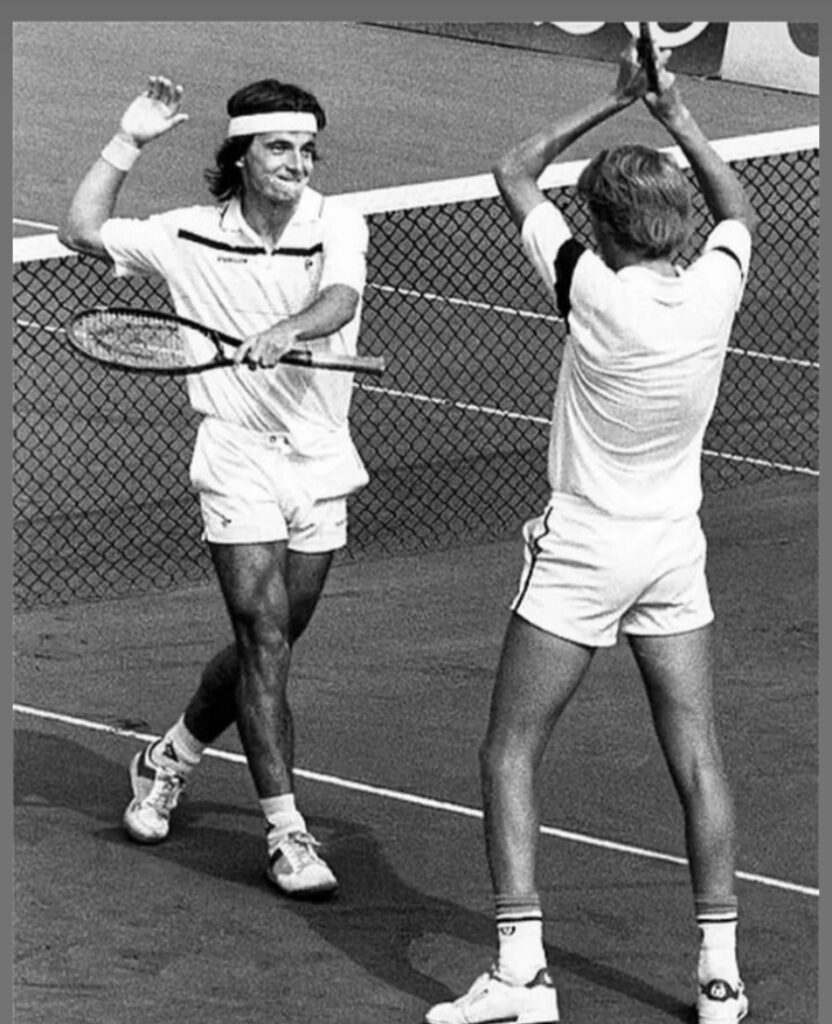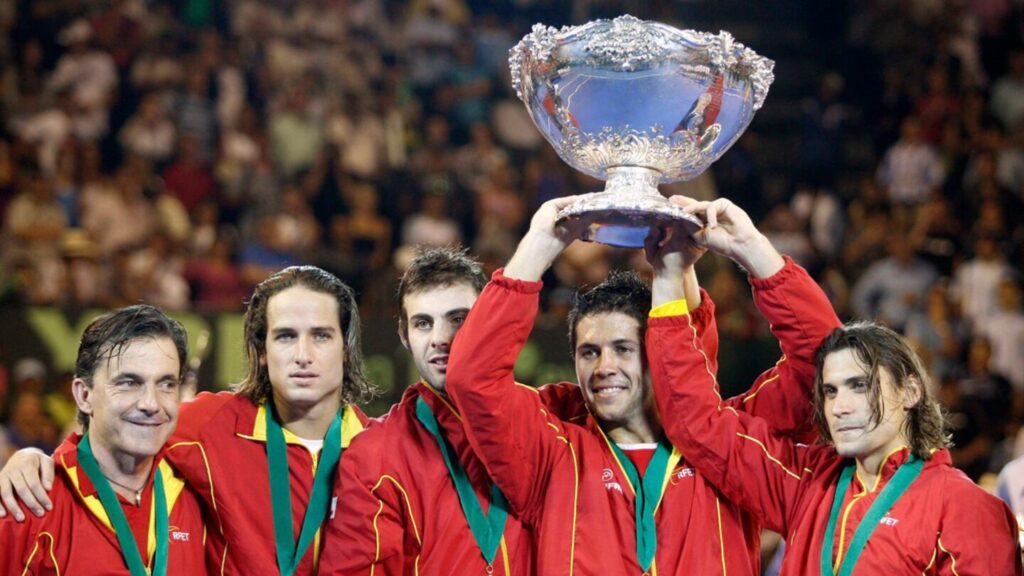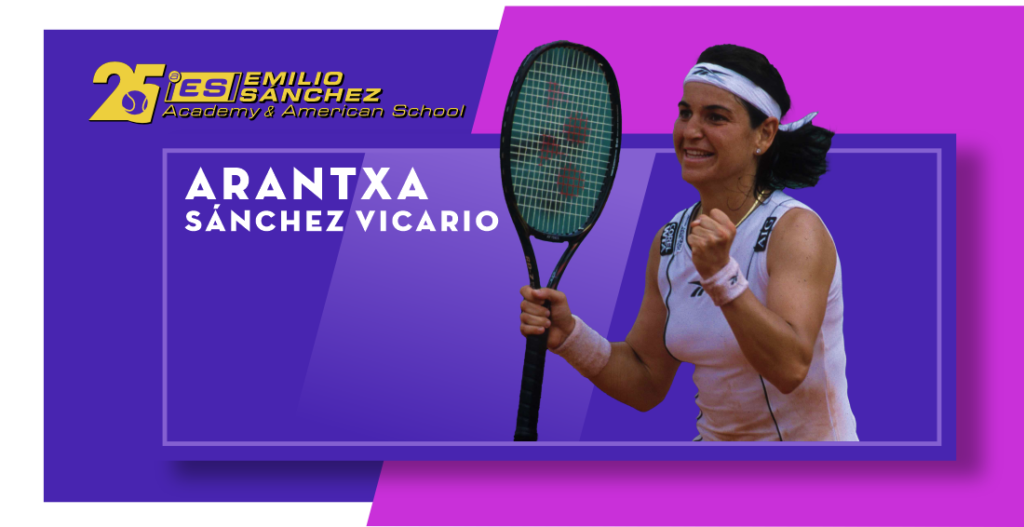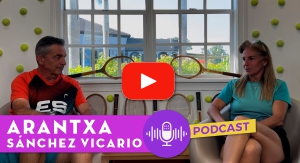Emilio: Arantxa, we begin this series of Podcasts of the Academy, and what better way to do it with one of the first students. It’s been 25 years since you were with us at the Academy first, and you became number 1 and became the greatest exponent of women’s tennis. I thank you very much for being here.
Arantxa: My pleasure.
Emilio: What memories do you have of those first moments when you were at your peak, and we started working together, at the time when we founded our center in 1998 in Barcelona?
Arantxa: The truth is that time flies by, doesn’t it? It’s been a while. It goes by very quickly.
Emilio: It’s been a long time, hasn’t it?
Arantxa: I have very good memories, although the truth is that I had to work hard. At that time we had a good schedule, good training, and I was also coming from a difficult, complicated moment. I had lost quite a few matches and I was trying to regain that confidence that had helped me win before. I have fond memories, of arriving first and leaving last, because I was really back on the tennis court, training, doing tennis, physical, planning again, focusing on being able to be competitive again. I remember spending a lot of hours there, but at the same time I have good memories because you could be outdoors, playing sports, and I felt like I could run all over the place and like I was at home. So it was hard, but not so hard at the same time because I was with my family and it was a time of togetherness, so in conclusion I have great memories from this time.
Emilio: And you had a very important predisposition in those moments, because I remember that you were like a mirror for the players who were there with you. I remember that you were incredibly good with Maui Serna, you even became Svetlana Kuznetsova’s godmother and you even took her to tournaments and shared a lot with her, isn’t that right?
Arantxa: Exactly. I spent a lot of time on the circuit and I was able to help the young girls who came after me and who were also friends, partners, while we shared good times. Their careers were also at the top, and it was important for me to be a little bit their godmother, the older sister, let’s say, to some of them, and to share those moments. The circuit is quite lonely, but being able to be together kept us company and above all we could talk about many things and I think that in the end they also became part of my family, and of the team.
Emilio: And what would you say to a junior, to a girl who is just starting? What would be your advice to her?
Arantxa: I would tell them to enjoy the moment, to try to give their best, to train hard and that if they do things right, the results will come, but more than anything to help them, to guide them a little bit, to tell them that the road is not going to be easy, but that they should have predisposition, passion, and above all determination to train well. And that if they train well, the results will follow. And also to help them in those moments when sometimes we girls are a bit down. Maybe it is about having a little help from the outside, from another person who knows the tennis world and who could also help in those moments.
Emilio: And now looking back, as a tennis player, how do you define yourself? What do you get most out of being able to teach your students and the people who are with you?
Arantxa: The truth is that I don’t like to talk about myself at all. I prefer that others don’t talk about me. I have always tried to be quite a humble person, to keep my feet on the ground and try to contribute as much as I can with my experience to the young women. I am a fighter, I think I have also transmitted that. I am a warrior, I do not give up despite the circumstances. Sport has helped me a lot, as it does now in my life. And as a mother, I try to transmit the values that sport and my family gave me to my children. That’s what I try to pass on. And if I can also help other girls, all the better.
Emilio: When you played the matches and those finals against the best, against Graf, against Seles, and you were losing and you were winning 6-1, 4-1 in the US Open, what did Arantxa bring up there? You talk about passion, about values, but who were you at that moment when you heard that 6-1, 4-1, what were you thinking?
Arantxa: I was thinking about continuing to fight, with the determination, the strength, the mental and physical pillar that I had, the confidence with which I played. I was thinking about fighting every point, getting the best out of me and saying, “if you are going to beat me, you beat me, I am not going to lose the match, I am not going to give up”. I tried to play every point from the beginning to the end, no matter what happened, to have confidence in myself to turn it around and win that match to have a chance to win the next one.
Emilio: And in those finals against the No. 1, when you are there, when you are so close to losing, but then you are about to win. In that moment, when you are about to win and you don’t get it, but you have to create another opportunity, how was your conversation with yourself at that moment?
Arantxa: Well, I talked to myself a lot, I encouraged myself a lot, I used to say the shout of GO, of war, as I said…
Emilio: That was when you won, but what about when you lost points?
Arantxa: I cheered up in those moments because I won, but when I lost I said, well, clean slate and I’m going to play the next point. I tried to let it not affect me when things were going badly, and I tried to focus on the next point so that if I won it, it would give me the confidence to continue. So it was about believing, believing in myself and above all having the determination and strength of confidence to be able to do it.
Emilio: Belief, confidence… in complicated moments, at that time, in any situation you got out of it through passion, confidence, determination, hard work. How do you see as a number 1 player, with great experience, in today’s world where there is so much talk about mental health issues and that a player does not know how to face adversity and that it is a mental problem?
Arantxa: Well, there has always been because we have also gone through it, but at that time perhaps it was a more taboo subject, it was not talked about. Now it seems more normal, but we have all had to face it and you have to know how to identify it, you have to work on it, you have to look for specialists to help you to get out of it and help you in such difficult moments. It is okay to ask for help. First you have to accept it because if you don’t accept it, it is much more difficult, I think. And secondly, with the help you find, be honest, because you have to have a 100% relationship with that person so that they can help you to face those situations. With this group of people, together with your team, and with the specialist, you can work through it so that it helps you, so that you can continue and have that confidence later in parties. How do I see it? I think it’s nothing strange to go through it or talk about it, but you have to work on it, and with that, everything goes much better. I think I am a mentally strong person, but I have also had to work on it; at the time I also had a person who helped me and it is not a bad thing, but perhaps in the previous period it was not talked about. It has always happened, we have all gone through that situation. Now there is much more talk, perhaps because of the media, social networks and everyone talks, but I think it is part of being an athlete.
Emilio: And when you have this support, because you have already found it, as you have to be part of your team, what advice would you give to young girls who are 14-15-16 years old who have a battle at this time and that maybe they do not see themselves, or that in this situation they think they will not continue? There are many girls who, at puberty, at the moment of development, throw in the towel because this problem of adversity, of difficulty, is too much for them, they have been making an important effort for 6, 7 or 8 years, playing for many hours and they decide to quit. What advice would you give to all those girls who have made a big effort and decide to quit?
Arantxa: Well, don’t do it, don’t throw in the towel, keep doing it a little more. Let them try. Not just because things don’t work out and they stop doing it. That they ask for help because it is important, to accept it, to work, but to keep trying and to improve day by day. And then set small goals, or something that can help them to improve, but because things do not work out, it is not possible to do it, but with work, discipline, strength and will, and with help, you can get out. To also believe in yourself, that you can do it, that it is also important and all that together, can help them. Do not give up, but keep on trying and trying. Because it is a shame that after the effort, they give up. You have to be strong and brave.
Emilio: Now that you are playing the role of coach?
Arantxa: (Laughter) No, I am not a coach.
Emilio: When you come here to the Academy, you come often and you play with the girls or with the boys or with the Pros, what kind of coach are you, do you look at it, are you technical, are you tactical, are you physical, are you mental, what do you focus on when you have to make a difference, to help those players?
Arantxa: More than being a coach I don’t try and tell them how to hit or not to hit, because there are already coaches for that in the Academy. Instead I try to see how they are. First I ask them how they feel, how they are and get to know them a little bit, and depending on how I see them, then I work in the sense that they get the confidence to be able to do things. Maybe I focus more on the human side, at the beginning, and then see how they are playing to help them gain confidence and do the exercises they can do to improve, but what I value is communication, which I think is very important. To know first how the person or the player is and then act.
Emilio: I always say that the good coach is the one who has different types of voice, the one who is able to have a soft voice, medium or even at some point, not more aggressive, but stronger, in the type of order or command he has to give. What type of voice do you like with your students?
Arantxa: Well, I am quite calm, but if I see that they don’t try, then I raise my voice a little bit, but I try to be quite understanding in the sense that well, this is as far as it goes. Then once you go beyond this point, I raise my voice, but I am not one of those who raises my voice very loudly. I consider myself quite, as I say, flexible, although sometimes you also have to tighten up a little bit.
Emilio: Why do you think that in today’s women’s tennis the players are more ephemeral? How many years did you play?
Arantxa: I played for 17 years.
Emilio: 17 years of which 14 or 15 were at the top, among the top 10 in the world, so all the time, right? What advice would you give to today’s players who have talent, ability and physique, so that they become players who stay longer in order to reach more people?
Arantxa: Well, I think every generation is a different world. I had the chance to play with three generations, well, almost four generations. I started with Navratilova, Evert, then with Graf, Seles, Davenport, Sabatini and company, then with Clijsters, Hingins, Henin, the Williams sisters. I competed a little bit with all the players, and I think that each generation is changing…
Emilio: But there were four of them with different styles and characters. So, that’s what people look for: I like this one, I like the other one more aggressive, the one that goes to the net, this one, that one? They are players with more determined characters, but they are all tennis players with 10-15 years of time.
Arantxa: In the end I think that in our generation the regularity was much more constant. It is true that it was much harder and lasting throughout the career and as you said, very, very long careers. Now maybe there are different champions, even different Grand Slam champions, at different times. I think the consistency was much more regular in our generation than now, but the girls today are stronger, more speed, more strength. The thing is that in my generation there was much more variety in the style of play, there were those who played topspin, those who played slice, those who played serve and net, those who played change of heights, those who played flat. Now it’s like there’s a plan: it’s strong, but if it doesn’t go on, they don’t have another plan B. I think that variety of style and all that consistency for so many years, you don’t see it as much now as in our time. I can speak more about my generation than now, but it is true that they are physically stronger. But of course, sometimes if plan A doesn’t work, you don’t have a plan B because there aren’t many who have that variety of play.
Emilio: How would you develop that variety of playing?
Arantxa: It’s not easy because once you are playing…. I think they would have to train more the drop shots or even more variety. But if with one or two sticks, as I say, they enter and they are already happy, they are not going to do it, because they are used to it. I think you have to introduce little by little, but not when there is competition, but more when you are training, because when there is competition you can not. But to introduce little by little in order to improve and then be a little more complete as a player.
Emilio: In the end, with all these changes, with all these situations, women’s tennis has been breaking down many barriers, in terms of presence and results. Women’s tennis is an example for all other sports, in the end it has been possible for some time to take very important steps, in which women have achieved equality in Prize money, equality on television. In the end, tennis is an example and other sports follow it, isn’t it? What do you think is still missing for women’s tennis to take a step further and really be at the same level? Because, although it has the same Prize money in the Grand Slams or in some of the Masters 1000, or now that in Madrid or Rome, who play together in the next tournaments that are in the pyramid of tournaments, the amount of prizes that are in the women’s tournaments is much lower than the men. What do you think they have to do there to be able to increase?
Arantxa: Well, the truth is I think that, as you have said, the sport of tennis is a privileged sport because compared to other sports where there are not equal conditions, Prize Money…
Emilio: …Privileged also because you have fought a lot for that equality, since the time of Billy Jean, with Martina, many changes have been made in the circuit, thanks also to all the players.
Arantxa: Yes, maybe Billie Jean was the pioneer, the first one who initiated the change and since then it has been improving. But what is there to do? It has evolved a lot from how it was at the beginning to now, but there is still a long way to go. I hope and wish that in the future there will be more and more improvements and it will get better and better. But certainly compared to other sports at the level of women, tennis is the one that is more even with men and have economic compensation, that other sports making the same effort, the same training and everything, are not so well compensated. I think we have to keep fighting, we have to keep doing things to try to improve the situation. But I don’t know, you’ll know better, I’m not going to get involved there (laughs). No, no, I don’t know. There are many things that can be done.
Emilio: You are a symbol in our country, because you broke every possible barrier imaginable when you competed at the highest level: in the Olympic Games you have the most medals, you are the one who broke the barrier with the Grand Slams, the one who put tennis in the homes of Spain… This means that in Spain there is an admiration and devotion for you.
Arantxa: Yes, thank God, I feel very loved, I feel I have always connected well with the people, I have had the public, the people always by my side, and even when I had bad moments, they have also been supporting me. I think you either earn it or you don’t, as an athlete I think this is the best recognition you can have, the affection of the public, and I feel very loved both in my country and abroad. I hope it continues for many more years.
Emilio: When people give you that affection and that state, what do you feel at that moment?
Arantxa: Sometimes I get red, sometimes I get goose bumps, the fact that people talk about me makes me happy, it gives me a lot of joy and gratitude, but I am also shy and in that sense I get very, very red. I really appreciate the love and that I have entered so many houses, that people have seen me play and have supported me so much, I have nothing but gratitude.
Emilio: You are not going to say it because in the end you are not one to sell yourself or to show yourself, but I can say it, and I believe in the end everything you have achieved, the legacy you have left for women’s tennis in our country, in the world, because in the end you have been a global player who is number 1 and in many countries you have been recognized for your ability and your way of doing things. But it makes me a little sad that in our country you are not recognized in the way you should be recognized, as the public recognizes you. And that they do not take advantage of you, of your charisma, of who you are and what you have been, of this way of speaking and telling your values and who you have been to be able to reach more people and to be able to get many more of these girls to stay in tennis and to continue teaching that our sport is very powerful. I hope that little by little they will realize it and that now that you are still very young and beautiful, that you can still give many things to further enhance the history and legacy that you have left. Because when you play the way you played, that is a very powerful value. I think that in Spain they don’t know how to take advantage of you as they should and even though you are now in the United States I think they should be smart and take more advantage of who you are and who you have been. Because your story is extremely powerful. At the Academy and me personally, I am super grateful and, when you come, I am even more grateful and I know that the kids always ask, when am I going to play with Arantxa? When you tell them that you are coming, their faces light up, so the more you come, the more you are going to impact all these people and they are going to be super happy.
Arantxa: It is always a pleasure. Besides, this way I see you more often and I also learn a lot coming here and the truth is that I feel at home and I enjoy it a lot, so I will come a lot more.
Emilio: Well, thank you very much for being here with us and for being the first guest of this podcast of the Emilio Sanchez Academy. This is your home and keep fighting with passion.
Arantxa: Congratulations for so many years and may there be many more to come.
Emilio: Well, to finish, as a player of those first 4 or 5 years that we were together, how would you define the Academy in four or five things that stayed with you from your stay at that time? What do you remember about the Academy from those moments?
Arantxa: Humanity, companionship, learning, values, and as I say, struggle. I think that helped me when I played and continues to help me as a person. You never forget that and that is what I try to transmit now even to my children or to the young people who ask me for advice. I hope I can help more girls with that.
Emilio: Thank you very much.
Arantxa: No, thank you too. It’s been many years, brother, I love you very much, you know that. And I’m excited to do these kind of interviews with my brother. Kiss.
Emilio: Thank you.
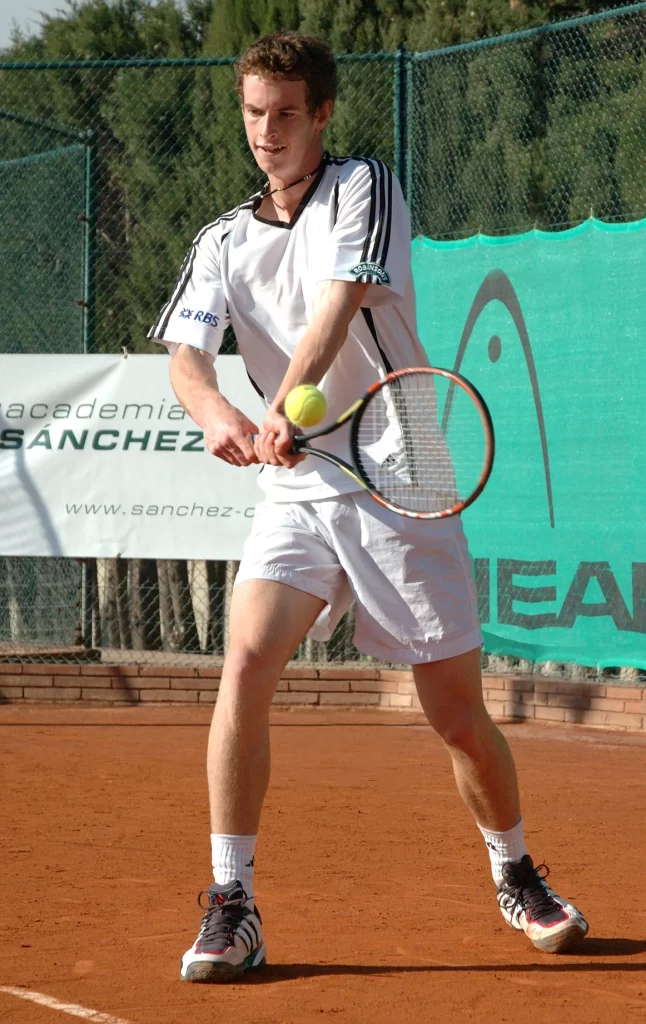
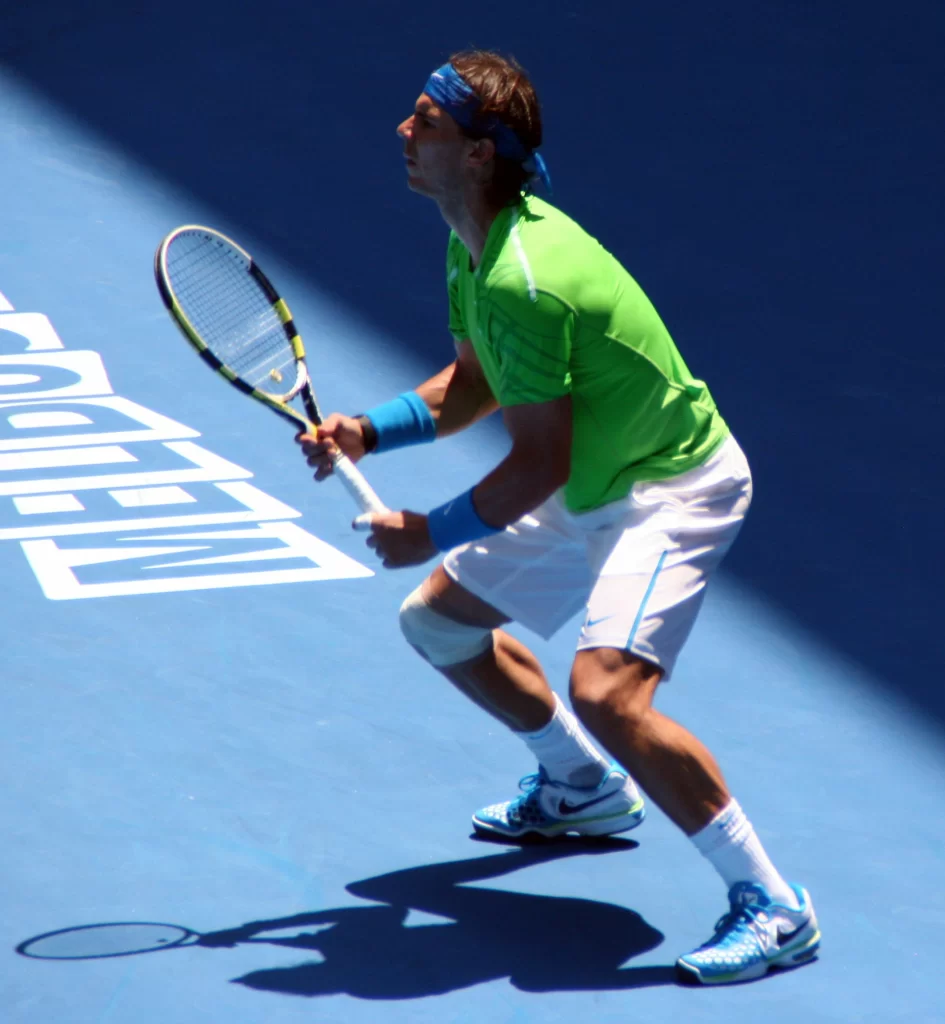
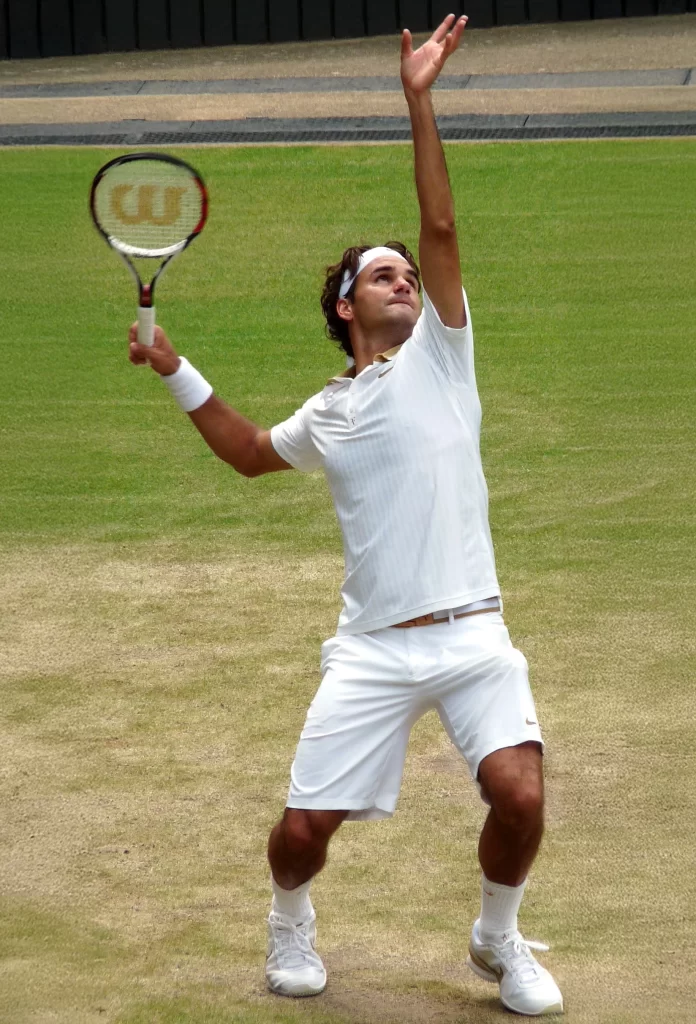
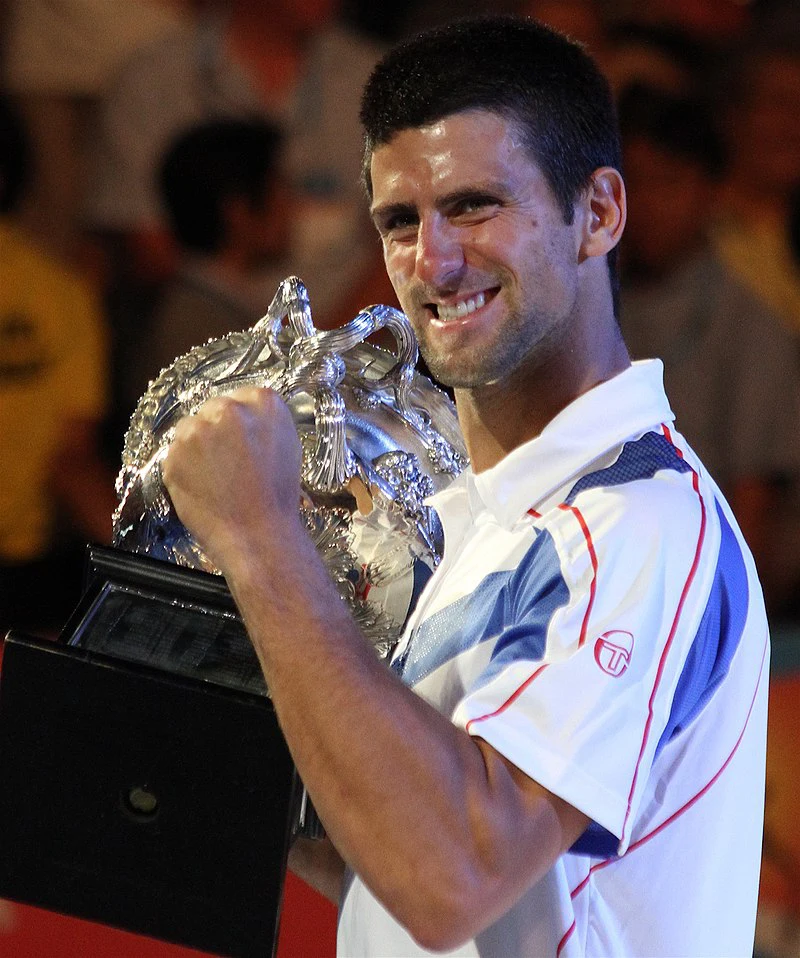
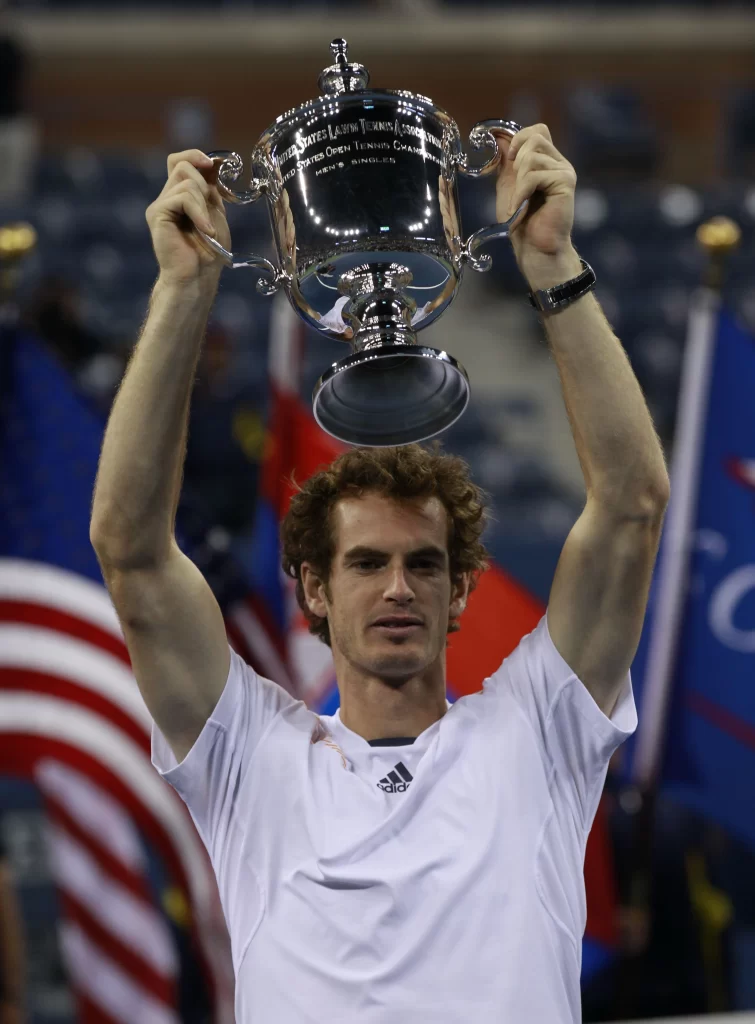
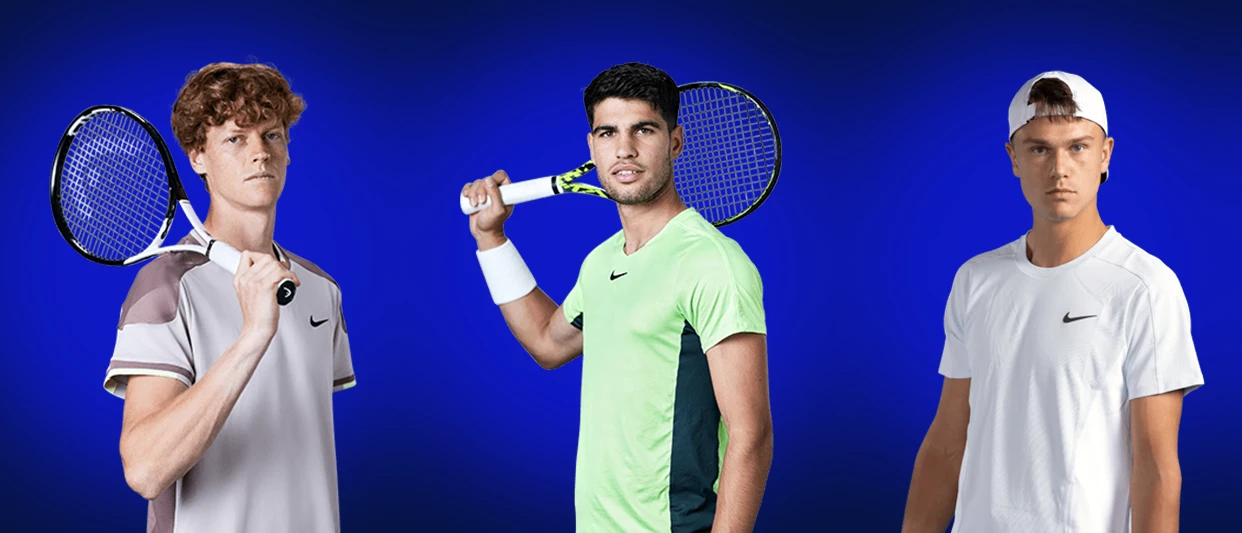


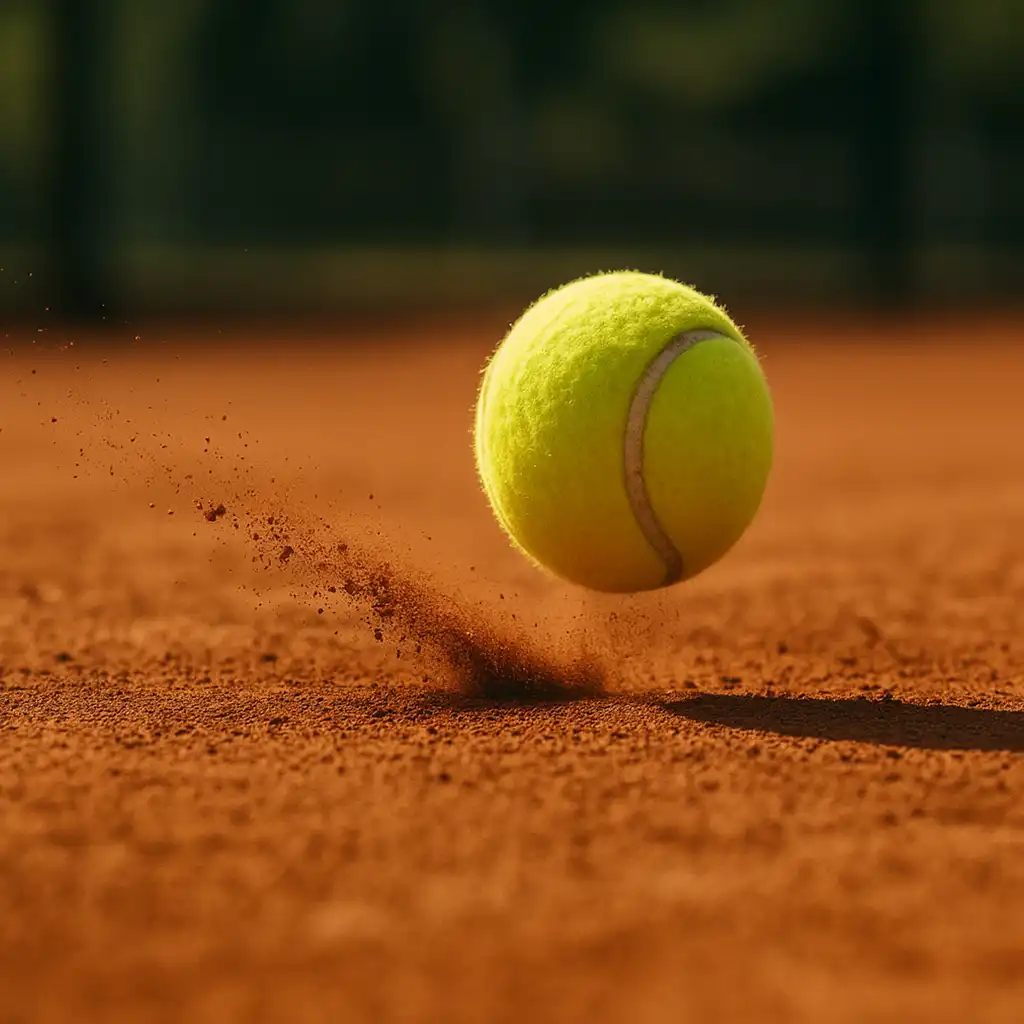

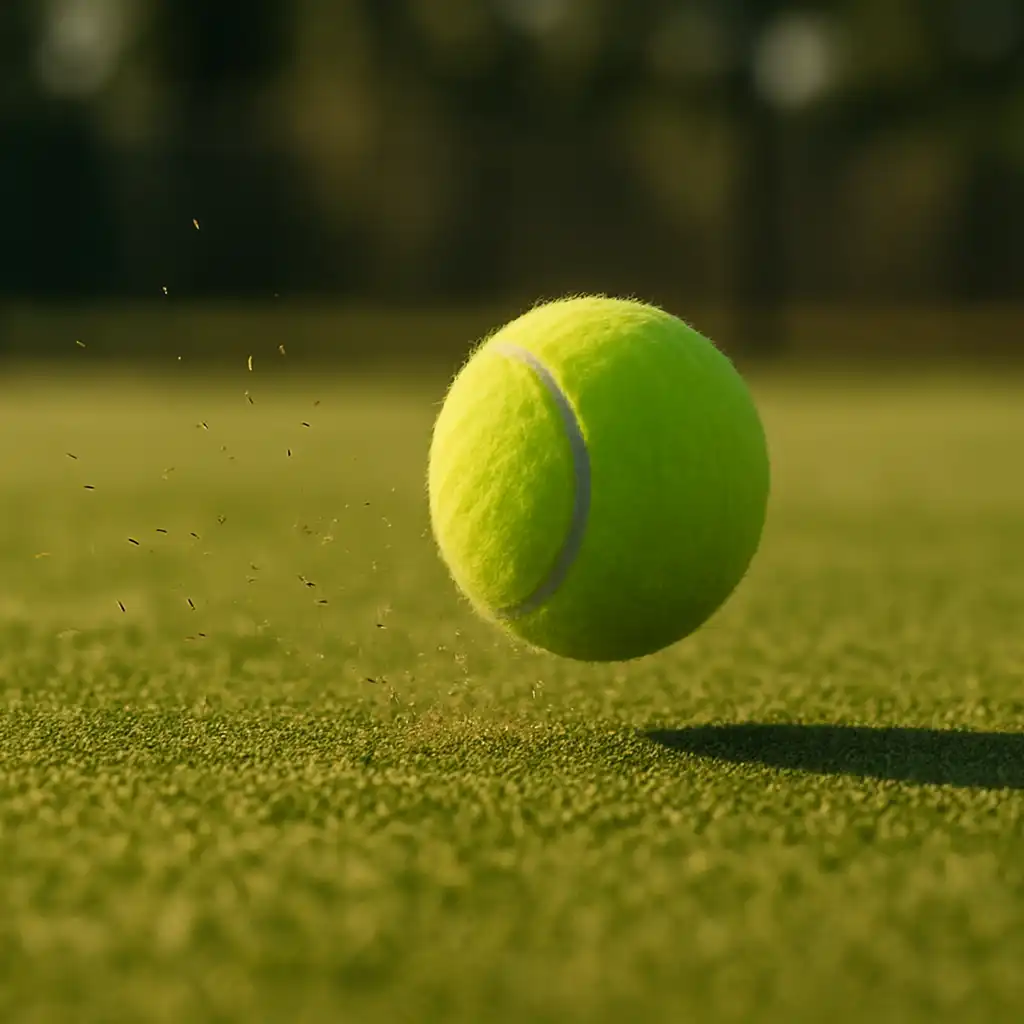
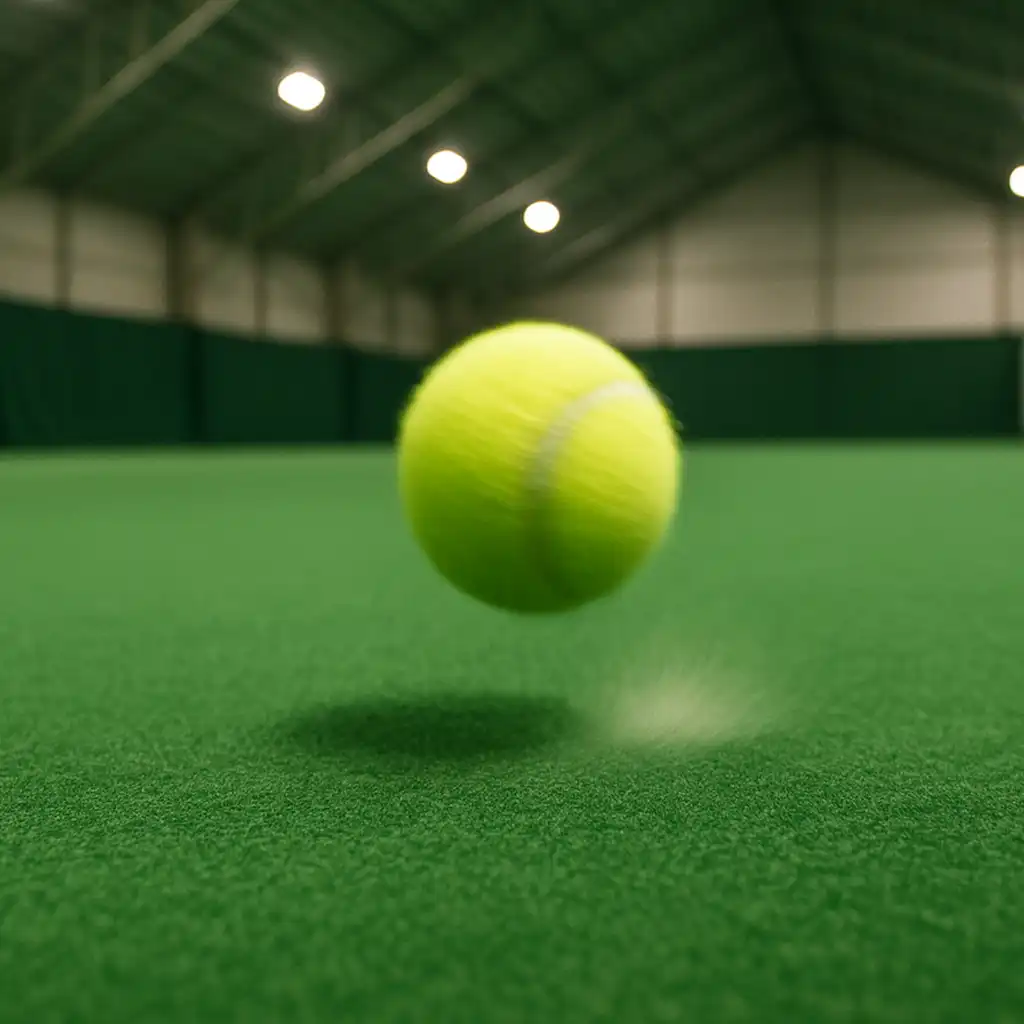
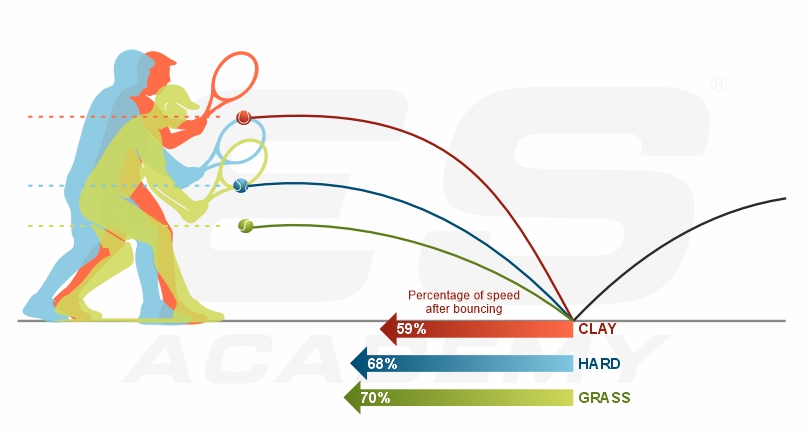
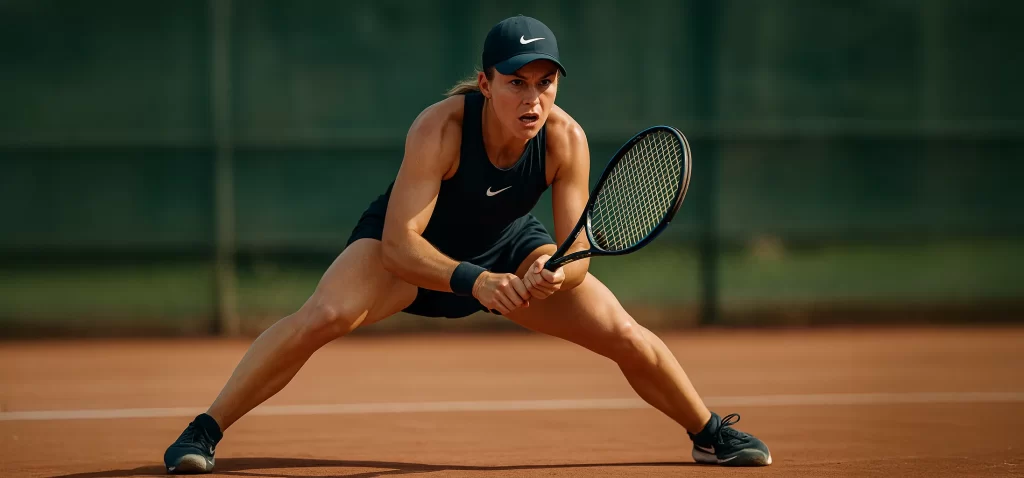
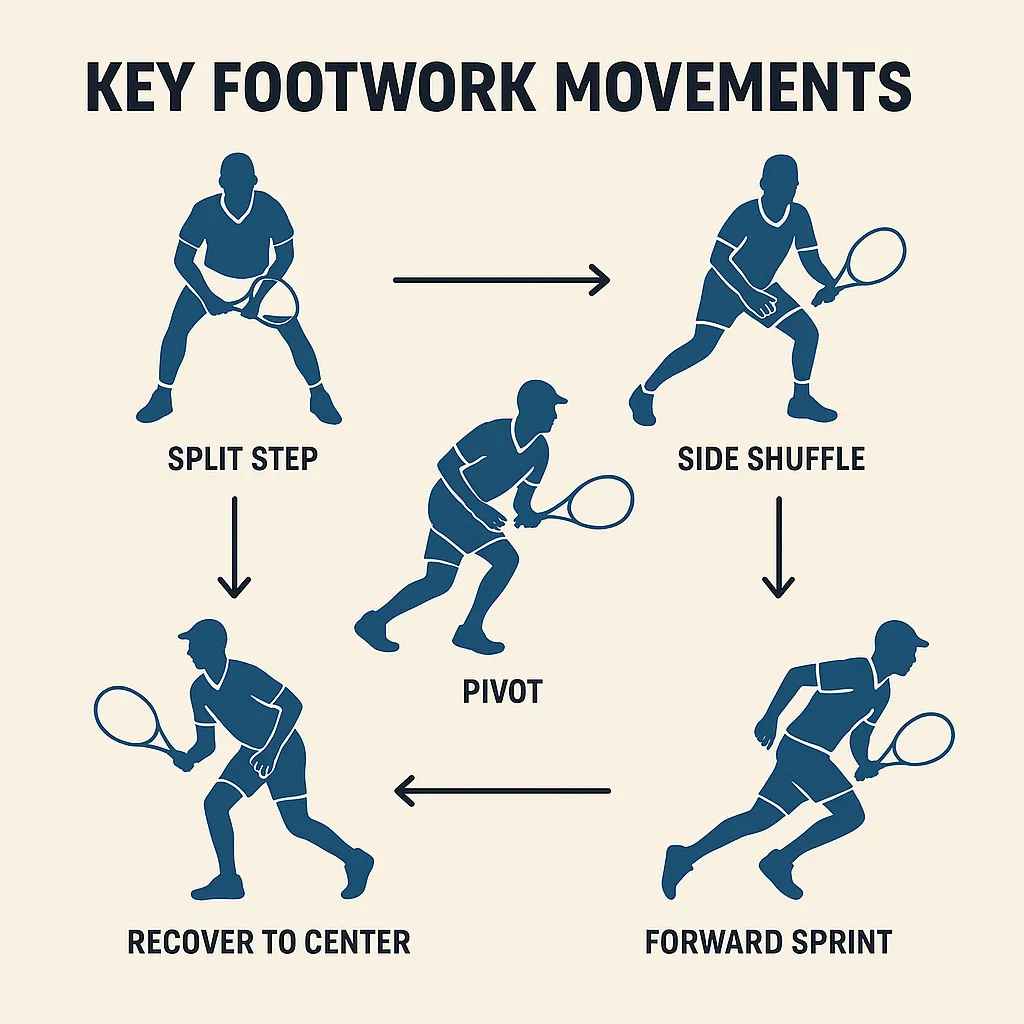
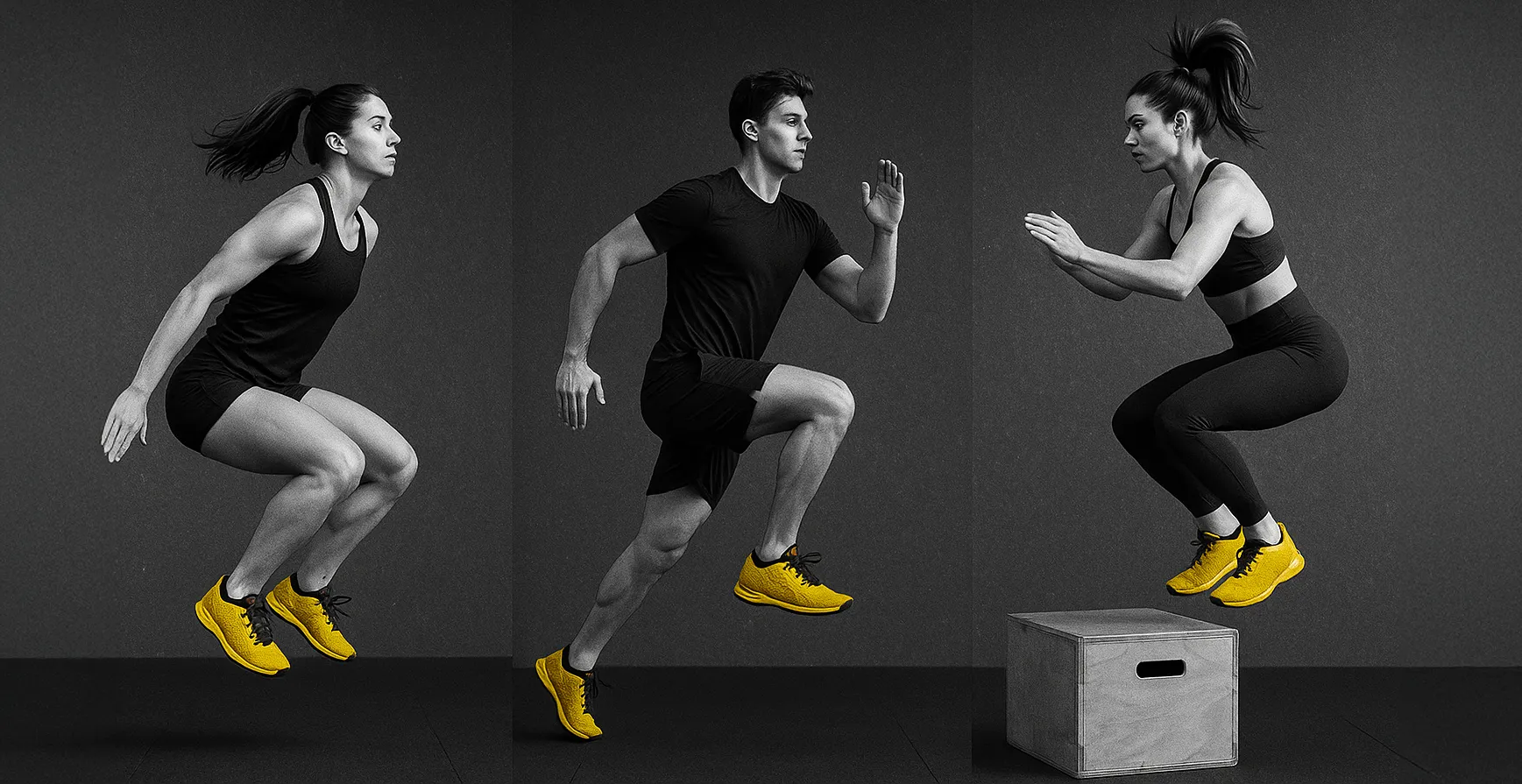
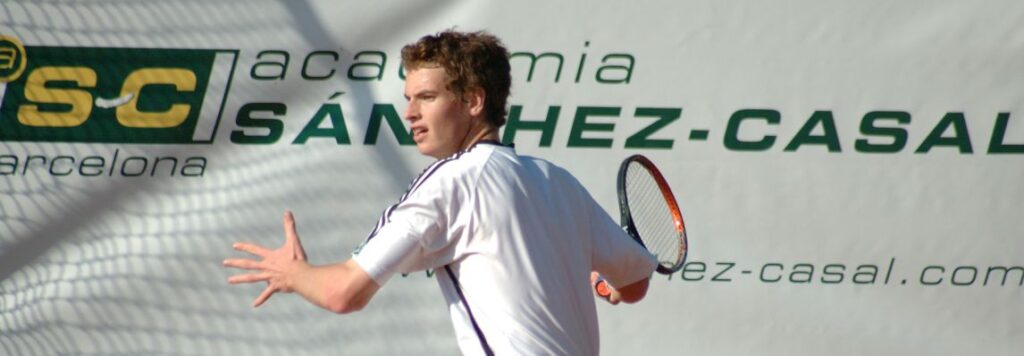

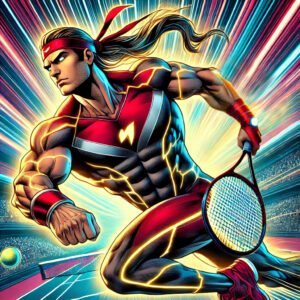
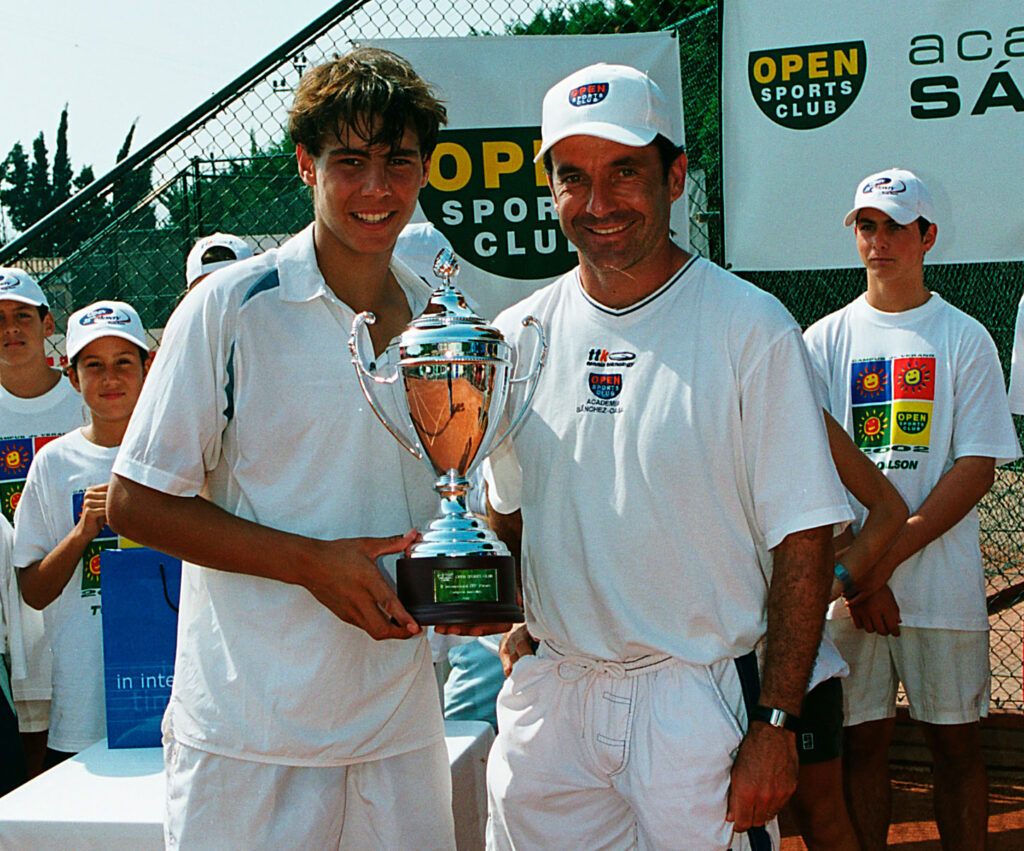 He chose at the age of 11 to play left-handed being right-handed, since he hit everything with two hands and did not think that when he grew up he would lack speed in his serve. This fact limited him a lot, he served 20 km/h slower than the others and above all he lacked precision in the direction and angles. He worked tirelessly on this aspect during the 20 years of his career, but even if he did not win so many free points, he made up for it with continuity and with his second and third shots. This ability allowed him to win almost 90% of his serves, the same figure as his rivals but with few direct points.
He chose at the age of 11 to play left-handed being right-handed, since he hit everything with two hands and did not think that when he grew up he would lack speed in his serve. This fact limited him a lot, he served 20 km/h slower than the others and above all he lacked precision in the direction and angles. He worked tirelessly on this aspect during the 20 years of his career, but even if he did not win so many free points, he made up for it with continuity and with his second and third shots. This ability allowed him to win almost 90% of his serves, the same figure as his rivals but with few direct points. 